.
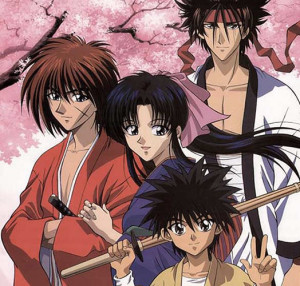 One of my favorite TV shows of all time is Samurai X, the English-language version of the beloved Japanese anime series Rurouni Kenshin. It takes place in the early Meiji era and follows the story of Kenshin Himura, a feared wartime assassin who tries to make up for the murders he once committed by traveling around the Japanese countryside and giving help to anyone who needed it. People who try to do the right thing all the time are always infinitely more interesting to me — self-absorbed people are so boring, self-gratification so ordinary — and Kenshin was the perfect embodiment of that ideal. He was someone who inwardly wrestled with darkness but always strived for goodness and peace and light, not just for himself but for the people around him, and he was also selfless enough to voluntarily relinquish his hard-won peace when required, such as when a powerful fellow assassin tried to bring down the Meiji government.
One of my favorite TV shows of all time is Samurai X, the English-language version of the beloved Japanese anime series Rurouni Kenshin. It takes place in the early Meiji era and follows the story of Kenshin Himura, a feared wartime assassin who tries to make up for the murders he once committed by traveling around the Japanese countryside and giving help to anyone who needed it. People who try to do the right thing all the time are always infinitely more interesting to me — self-absorbed people are so boring, self-gratification so ordinary — and Kenshin was the perfect embodiment of that ideal. He was someone who inwardly wrestled with darkness but always strived for goodness and peace and light, not just for himself but for the people around him, and he was also selfless enough to voluntarily relinquish his hard-won peace when required, such as when a powerful fellow assassin tried to bring down the Meiji government.
Which isn’t to say that all this passed through my mind as I strolled through the forest and grounds of the Meiji Shrine, or Meiji Jingu, in Tokyo last year. In fact, I only belatedly discovered its tenuous Samurai X connection when I tried to remember why the name “Meiji” rang vague bells in my mind. I mean, I’ve heard of the Meiji era, obviously, but I had a feeling there was something more……… So that’s what it was.
The Meiji shrine is dedicated to the Emperor Meiji and his wife Empress Shoken. It’s a haven of green and silence in the middle of bustling Tokyo, and even though it attracts visitors from all over, it is still undoubtedly a shrine first and foremost.
*
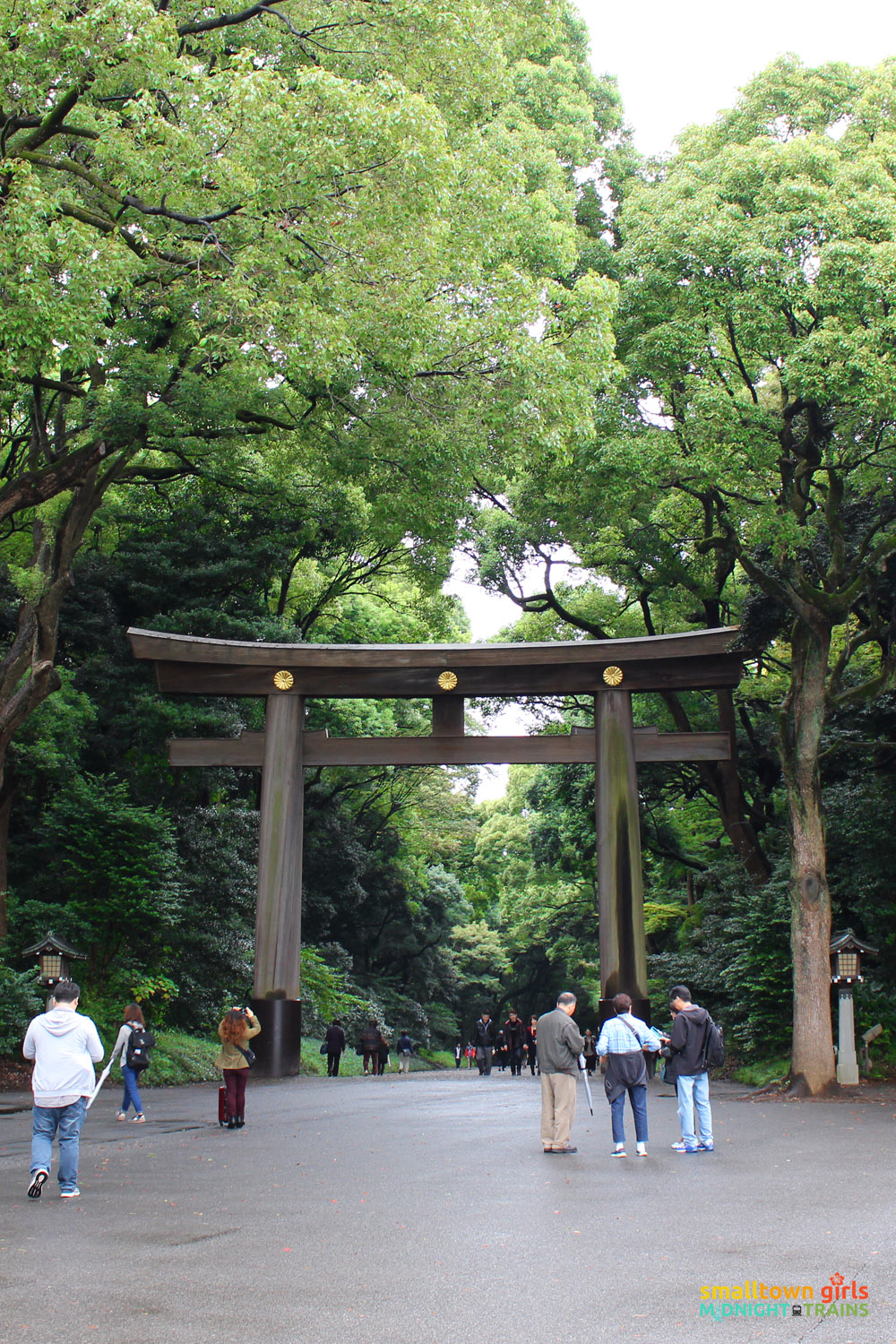
_
This imposing, elegant torii (gate) is just a few meters away from the JR Harajuku Station.
A bit further in, little Japanese girls in bright kimonos gamely posed in front of flower and bonsai stalls, to the delight of their audience.
*
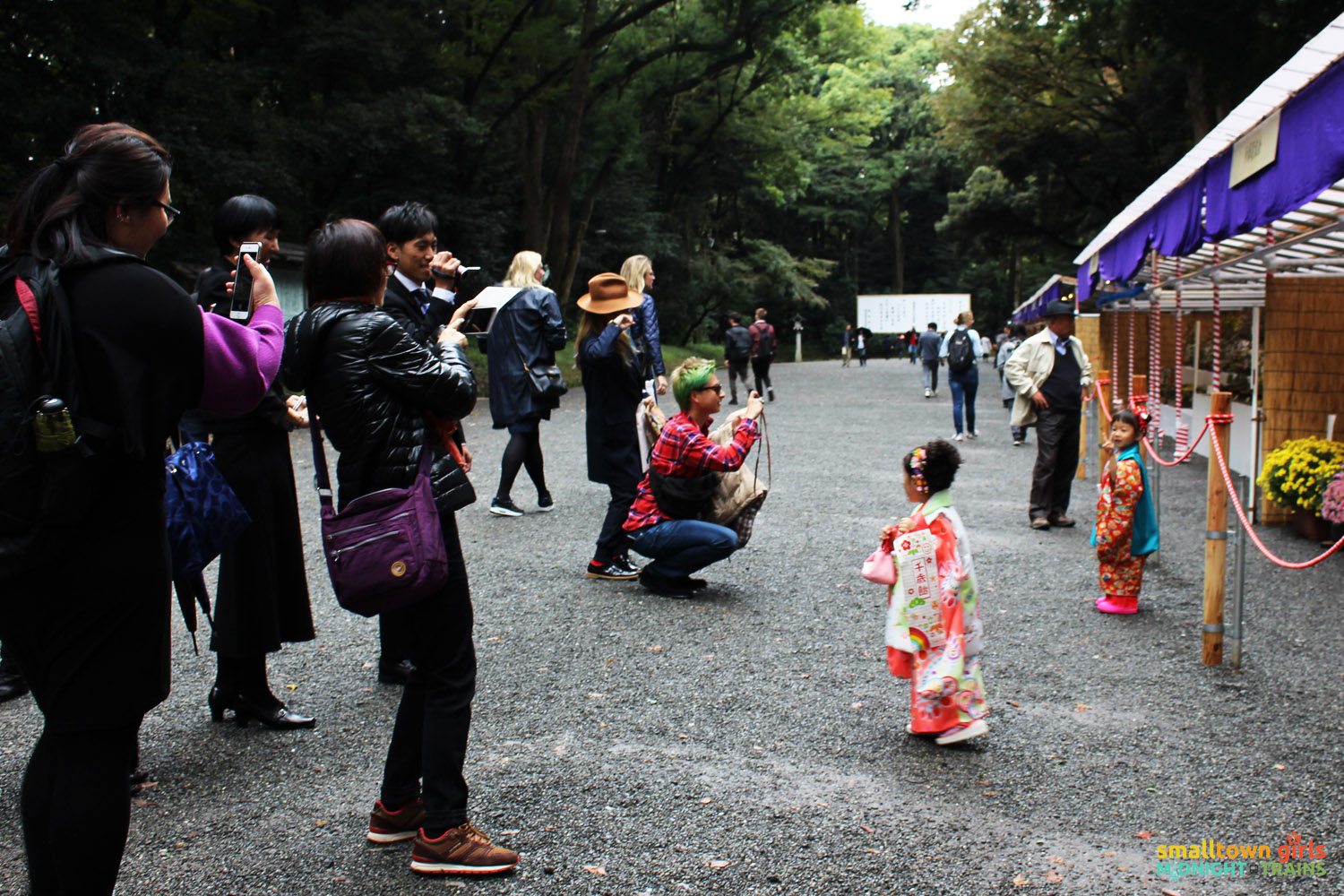
_
Somewhere between the gate and the main shrine buildings, sake barrels — donated to the shrine by sake makers all over Japan — are stacked up by the roadside, opposite a similar stack of wine barrels, gifts from France.
*
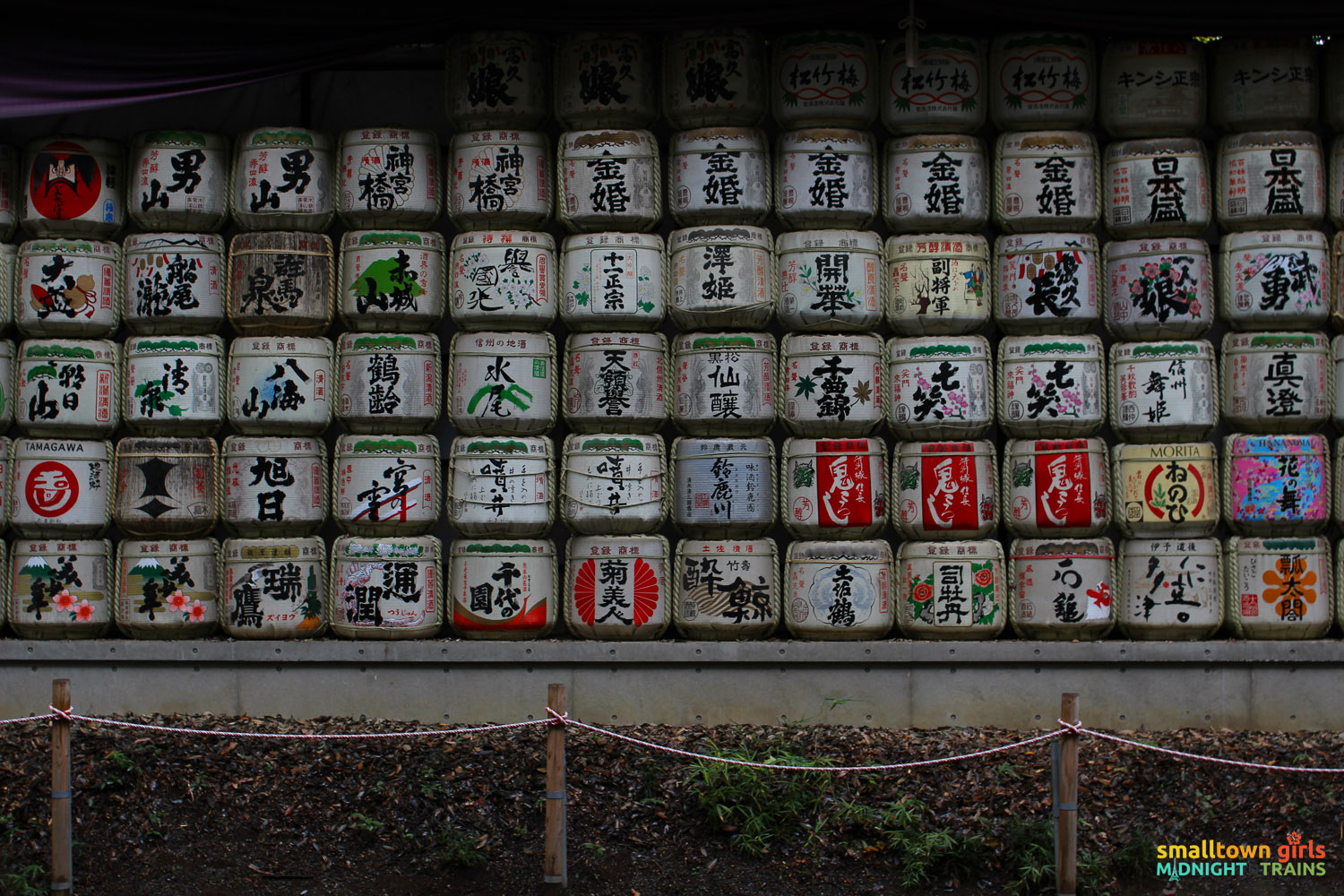
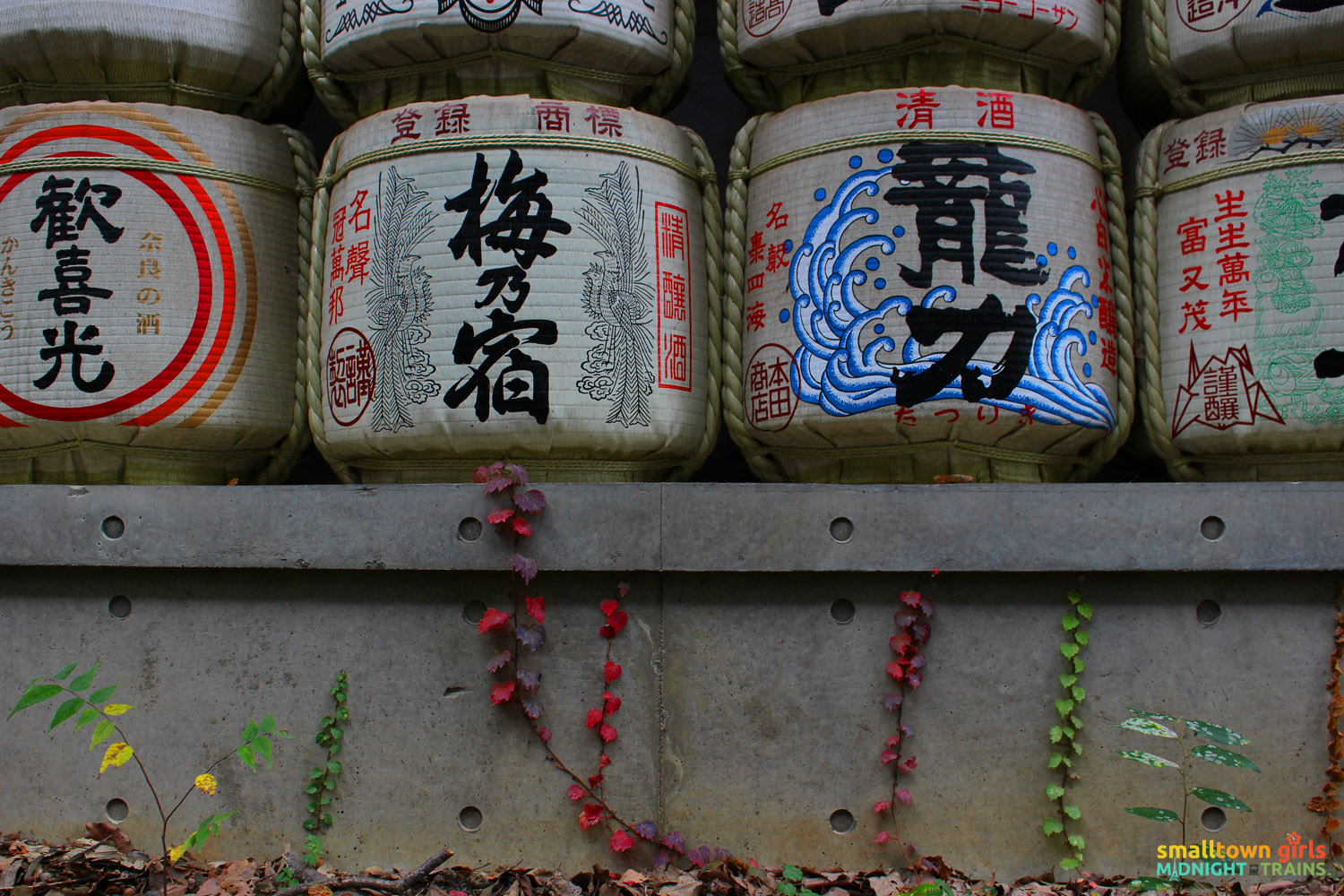
_
It’s a symbol of goodwill but also, I think, appropriate in a shrine dedicated to the emperor whose reign marked the opening of Japan to Western influences, as well as internal reforms geared towards advancing Japan’s stature and influence in the world.
*
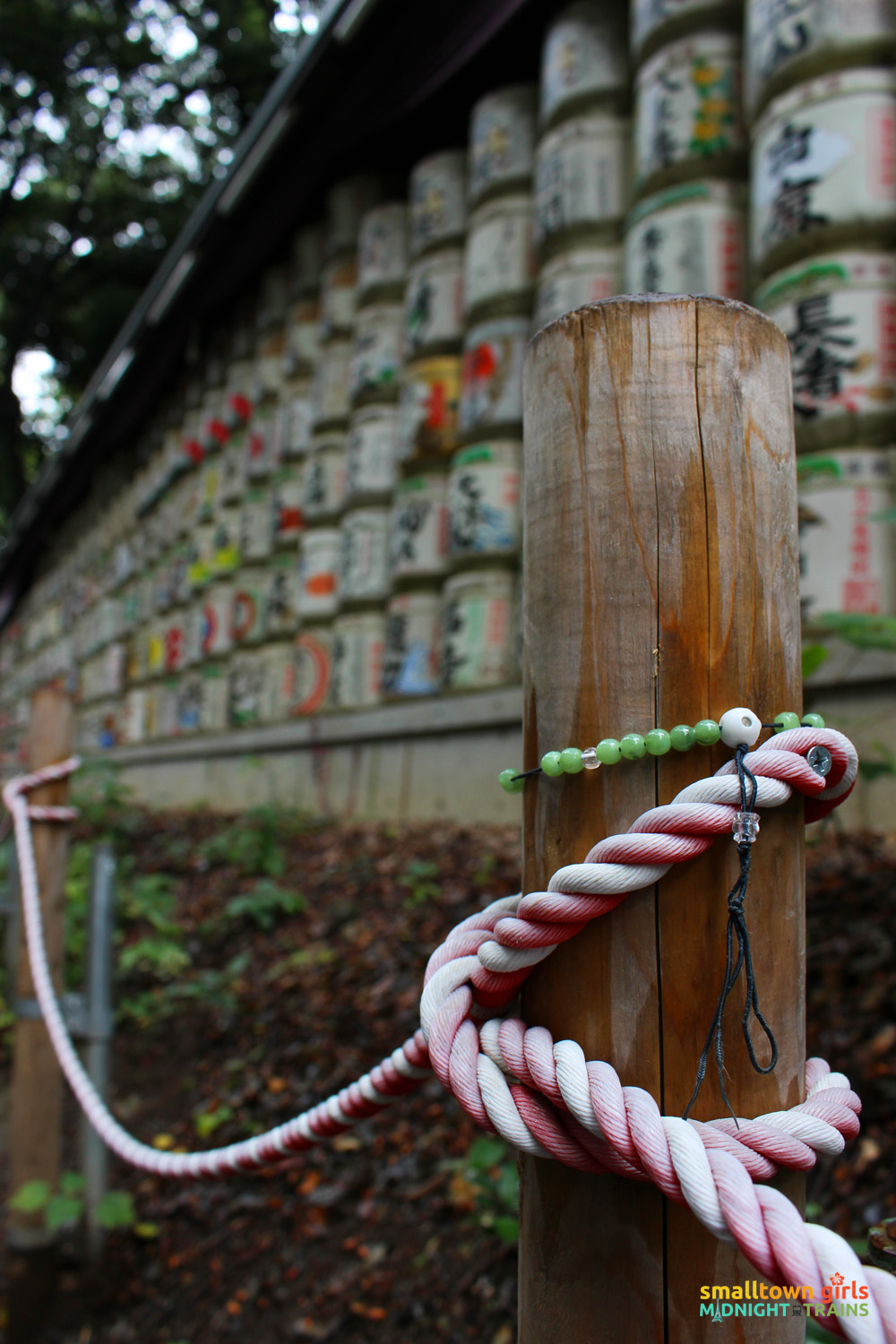
_
Despite the abundance of foreign tourists, the Meiji Shrine was still mostly filled with locals and I loved the tiny glimpses into the Japanese/Shinto culture.
*
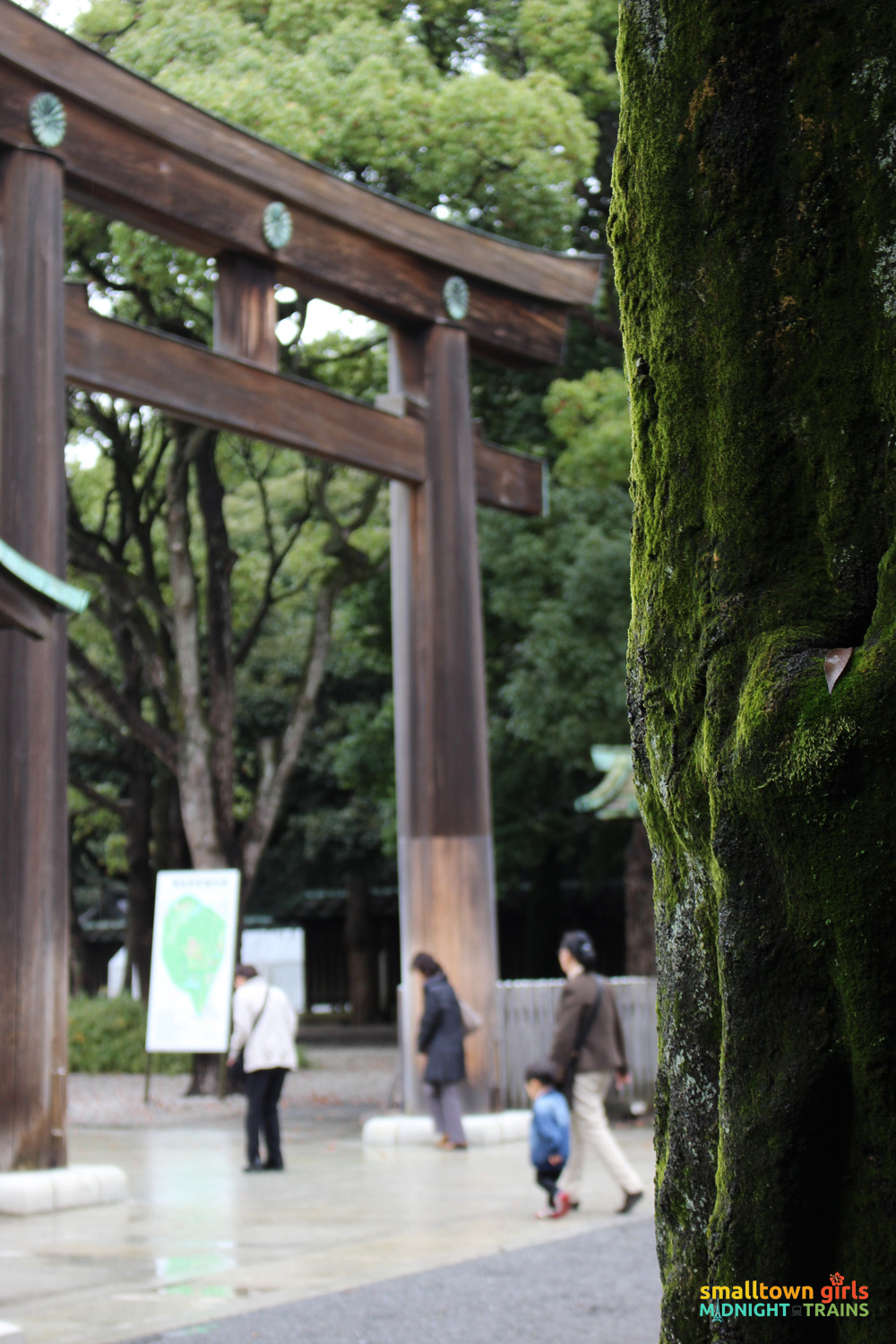
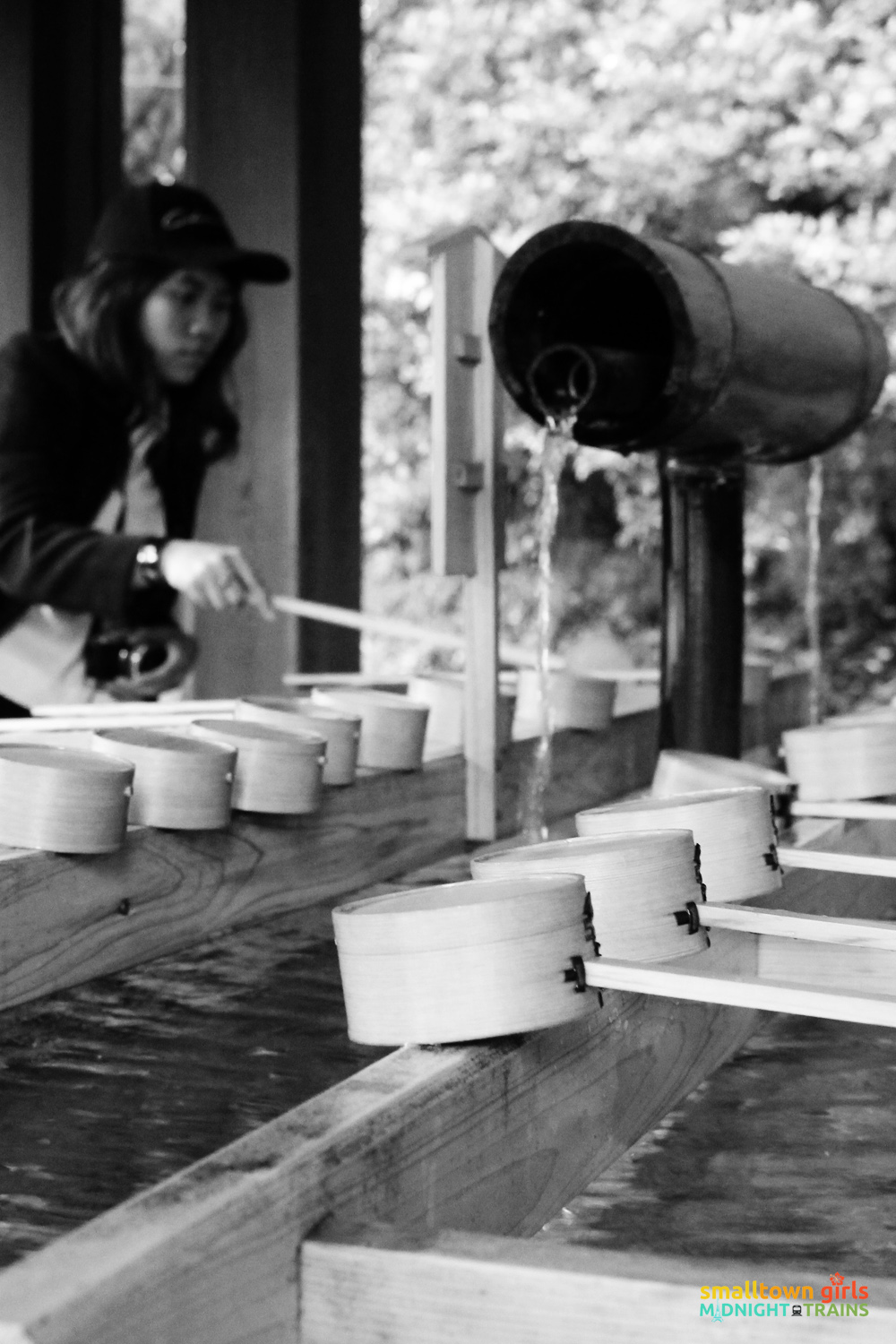
_
The purification trough, a common feature in temples and shrines in Japan, is where people rinse their hands and mouth before approaching and praying at the main hall.
*
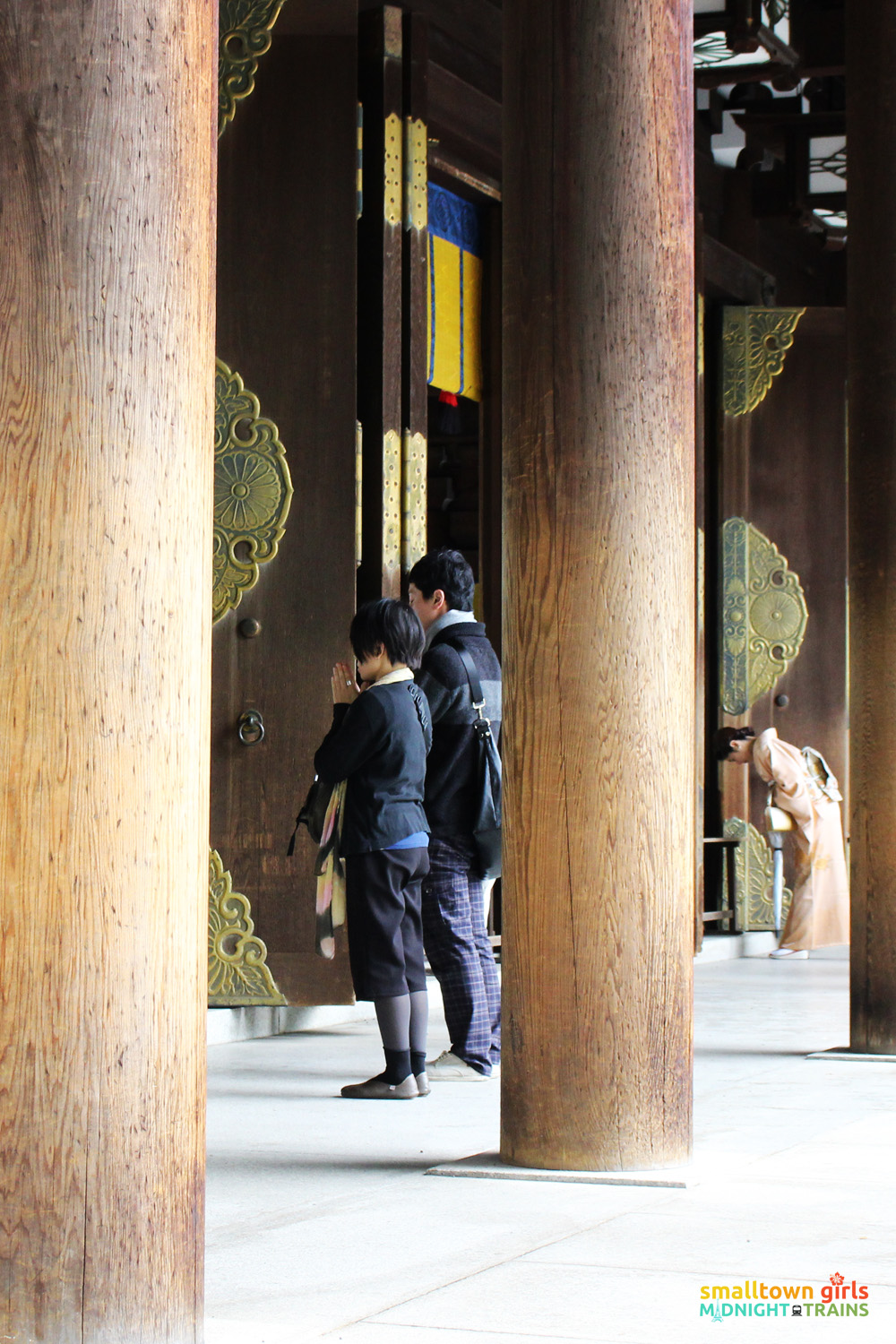
_
Ema, or wooden plates, are where visitors write their prayers and wishes.
*
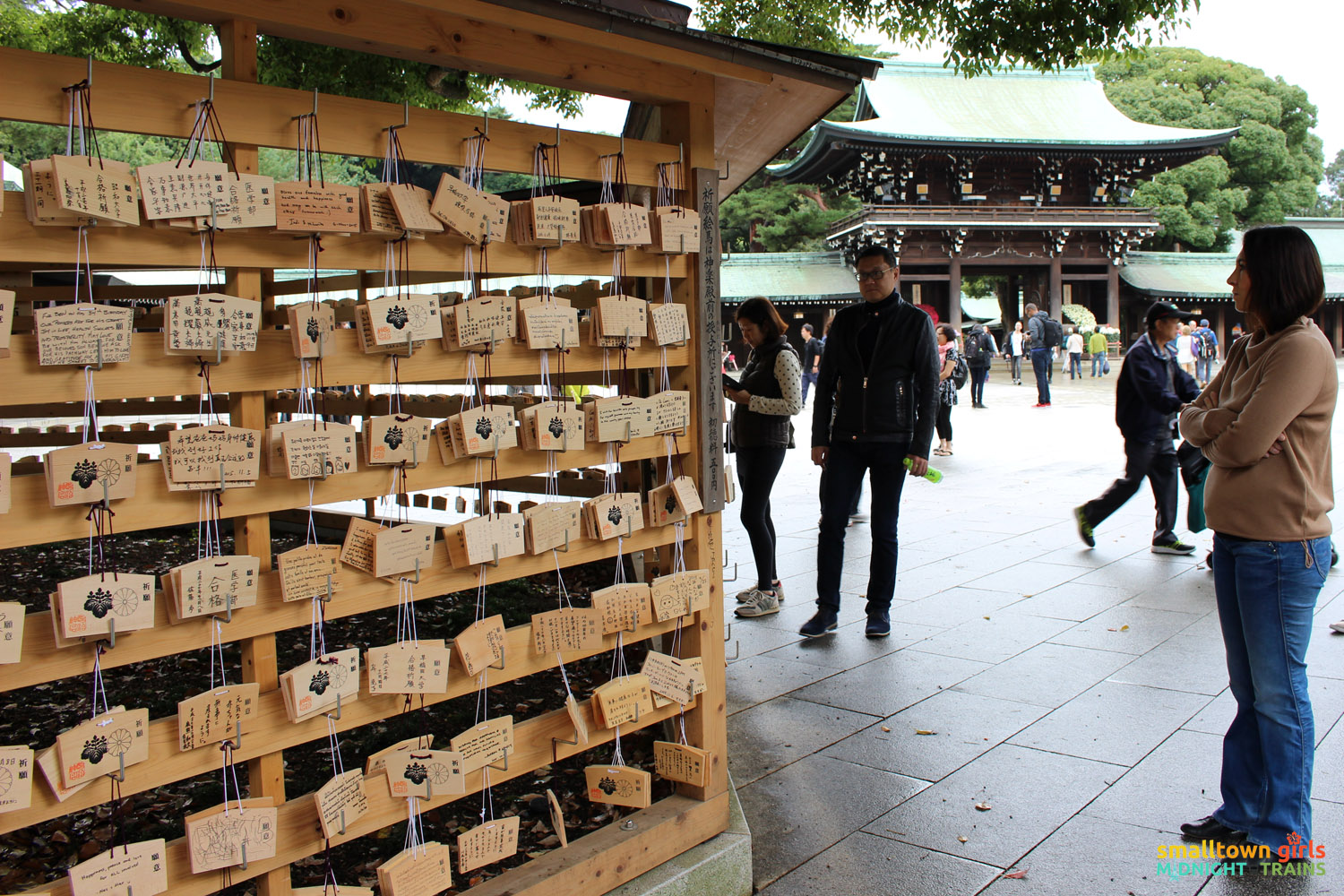
_
I was taking pictures of the beautiful wooden doors when I noticed a wedding procession passing by.
*
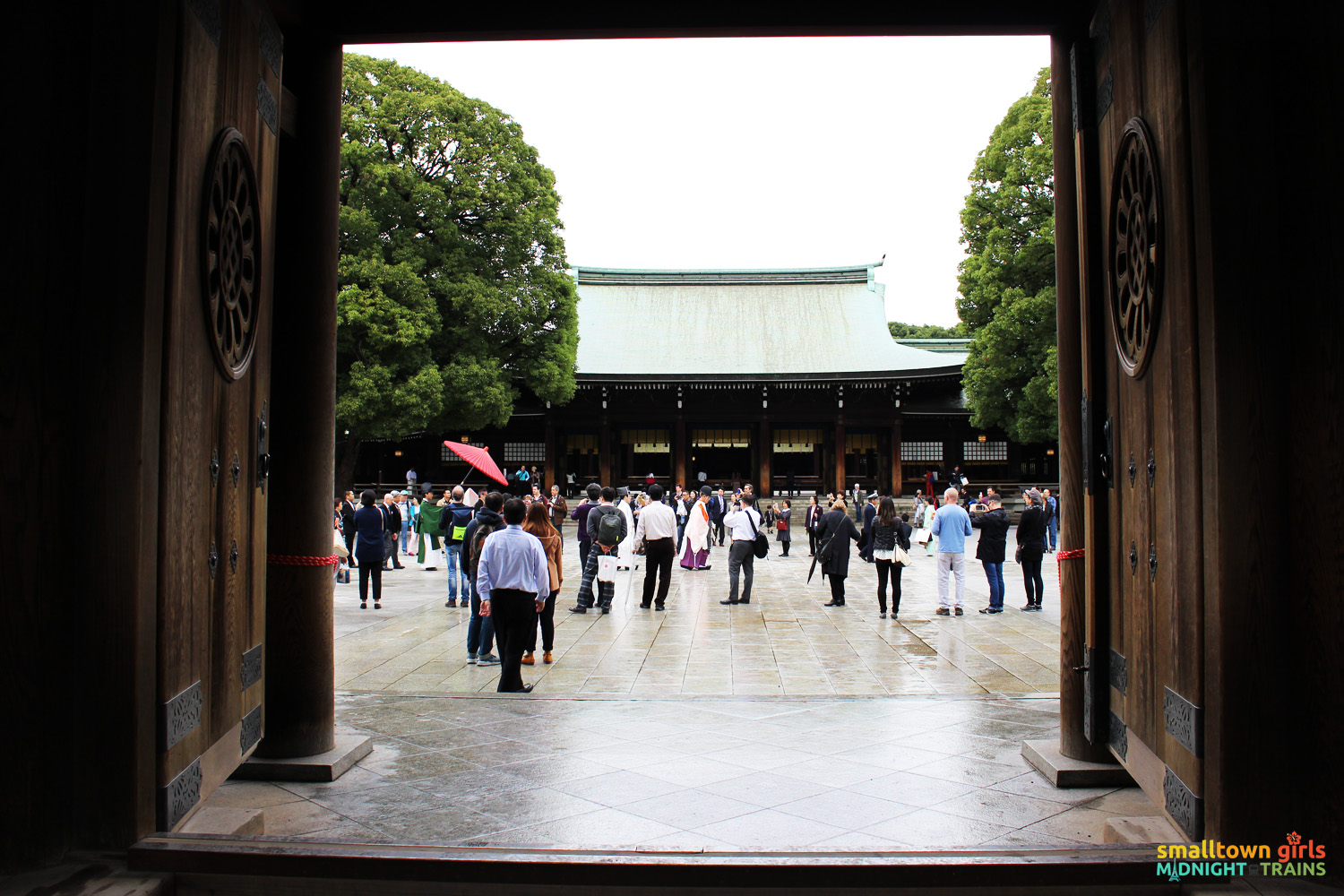
_
I hurried inside and felt incredibly lucky that I was there at just the right time to witness one.
*
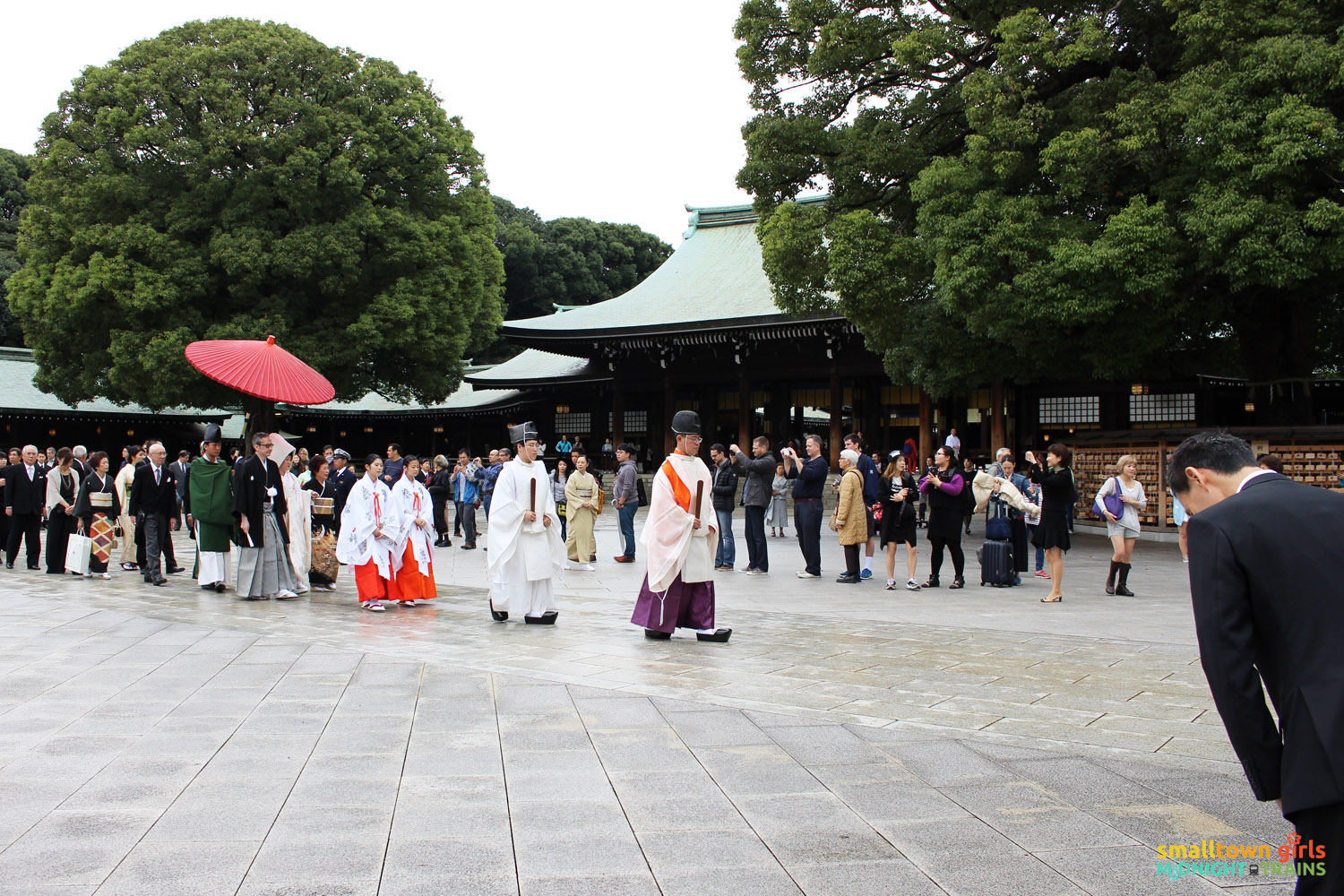
_
And probably my favorite photo from my visit to the Meiji Shrine: a mother and daughter, guests at the wedding. I just loved the smiling graciousness of the young lady, and the tender way she looked down on her solemn-faced little girl.
*
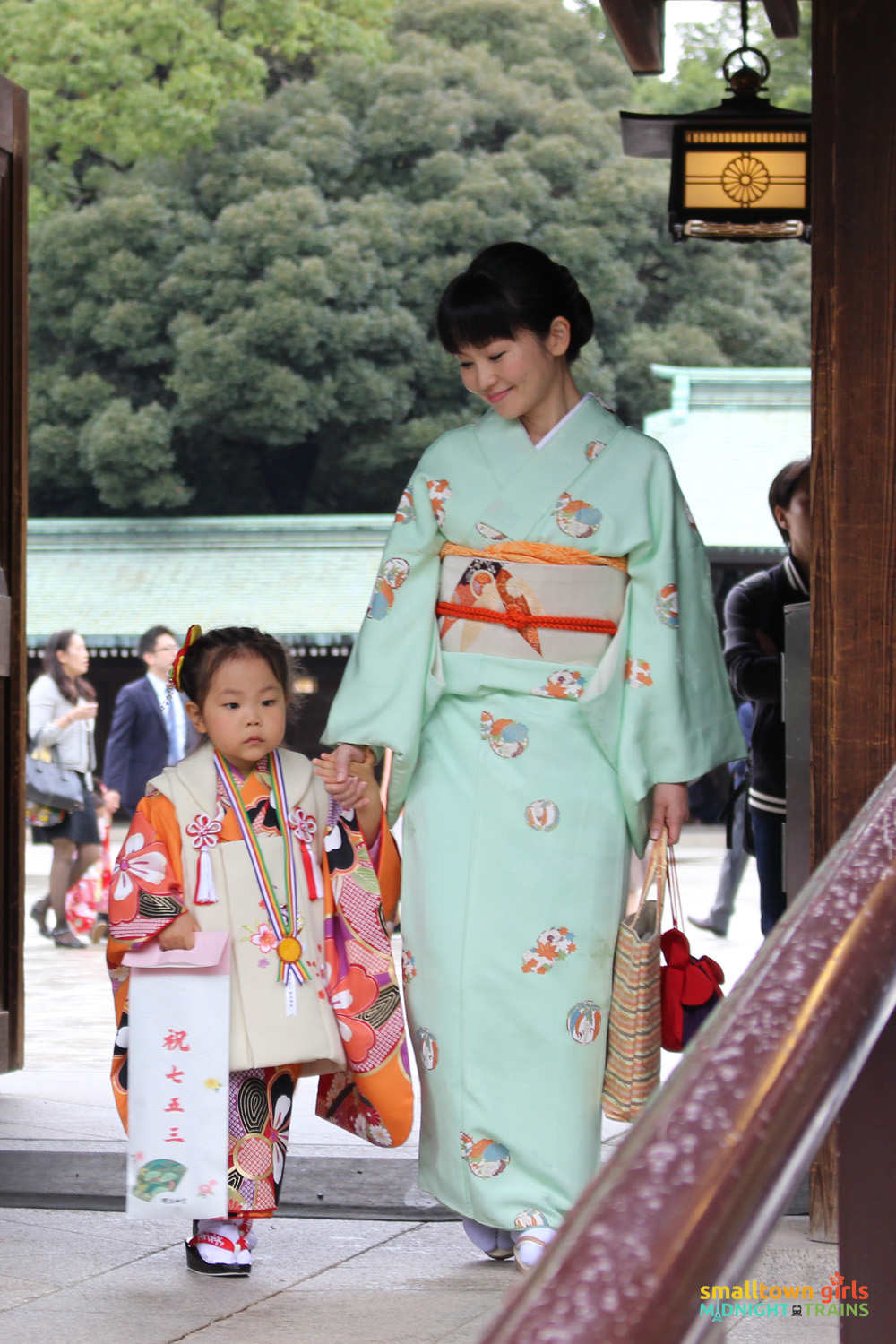
_
I think it was just as well that I entirely forgot about Samurai X and its Meiji associations, and saw the shrine for what it is, not what I wanted it to be. It was a short foray into just one facet of Japanese life but it turned out to be a very worthwhile visit.
*
How to get to the Meiji Shrine
*
Take the JR Yamanote Line to Harajuku Station. Exit, walk right, and you’ll be at the shrine gate in no time. See a map in the shrine’s official website HERE.
You can learn more about Shinto shrines HERE.
*
What aspects of Japanese culture would you like to explore on a visit to Japan?

The Meiji Shrine
© Small-Town Girls, Midnight Trains. All rights reserved.

wonderful post… Japan is so incredible to me… they are super modern, with all the cuttng-edge technology and all, yet they do not forget traditions at the same time… love that last photo of the mother and girl in kimonos…
That’s so true! Their traditions and values like honor and all that… That story of the elderly who volunteered to work at Fukushima was just amazing http://www.bbc.com/news/world-asia-pacific-13598607
I have to say your photography skills are up there…these photos are B E A U T I F U L & beautifully taken.
Thank you! I’m just really happy that I was able to capture some of them, especially that mother and child photo… You know when you just click and click and click and when you look at your photos later, you’re like, omg, I can’t believe I caught that moment and it’s not blurry 😀 That’s what it was for me 😀
Definitely a special moment and scene you captured. Your focus in some of the other pictures are noteworthy too. I admired them and wished I was better at that….Give yourself credit-you knew when to click even if it was click-click-click and check later.
You must have been there the same day as me! The women in their traditional dress and a wedding at the shrine!
Oooh! We might even have been face to face with each other and just hadn’t known it. So cool.